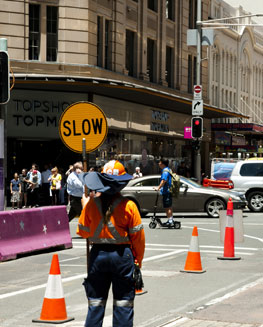Sometimes, sourcing local candidates alone don’t quite meet our clients’ needs in terms of suitability and availability. To help resolve short-term skills shortages, we seek international candidates who are eligible for a temporary or permanent Australian visa.

Supporting Australian construction workers in jobs is our aim.
How to get a visa
Unless you’re an Australian citizen, if you want to work in Australia, you must get a visa before arriving. The right visa for you will depend on your individual circumstances and how long you intend to stay in Australia. If you’re looking to apply for a visa and need some advice on the types of visas available and eligibility criteria, a good starting point for your research would be the Australian Department of Immigration website www.immi.gov.au/immigration
Working Holiday Visa (WHV)
The WHV (417) Visa isn’t permanent, but for anyone aged between 18 and 30 (inclusive) it’s a great way to visit Australia and work for the entire period. However, you can’t work for more than six months with any one employer. Once the WHV has been granted, you have 12 months to arrive in Australia and you’re initially permitted to stay for a maximum of 12 months. But, while on your first WHV (417), if you spend 3 calendar months (or a total of 88 days on and off) working in designated regional parts of Australia doing ‘Specified Work’, as classified by the Immigration Department, you may be eligible to apply for an extra year. Click on the link for further information: https://www.border.gov.au/Trav/Visa-1/417-
Sponsorship
If you are interested in sponsorship in order to work in Australia, please click here
Working Logistics

Applying for a White Card
The White Card course (CPCCOHS1001A – Work safely in the construction industry) is mandatory for anyone wanting to work in the Australian construction industry. Training covers basic knowledge of construction work, applicable Work Health and Safety Laws, common hazards you may encounter and how to control the associated risks. When you’re finished you’ll receive a certificate and a card, which must be carried with you onsite at all times. Failure to do so may result in you not being allowed onsite. It’s best to complete the course in a classroom, rather than online, because training is more thorough and it’s a faster process. In fact, some larger sites may NOT accept a white card obtained online. For further information on eligibility, authorised white card trainers and the application process please click on the link. http://www.workcover.nsw.gov.au/licences-and-registrations/licences/white-cards-cic If you have any other questions, please contact our office on 02 8086 3444.
Applying for a Tax File Number (TFN)
Your Tax File Number (TFN) is a unique number issued by the Australian Taxation Office to help manage tax and other government services. Though not mandatory, you pay more tax without one. So, apply for one as soon as you arrive in Australian and before you start work. How you apply for a TFN depends on your circumstances, so please click on the link for further information. https://www.ato.gov.au/Individuals/Tax-file-number/ Otherwise, call Advanced Group with any questions on 02 8086 3444.
Banking in Australia
Picking the right bank for you, from Australia’s range of options, depends on what’s important to you. So, do some research before deciding, thinking about their products, rates, account fees, opening hours and location of automatic teller machines. You may like to consider any of the four major banks:
For more information on visiting, working and studying in Australia, returning to live in Australia and Australian citizenship, visit the Australian Government website: http://www.australia.gov.au/information-and-services/immigration-and-visas
Superannuation
Superannuation (‘super’ for short) is just like a pension fund. For tax purposes, it’s a compulsory scheme whether you’re a permanent or casual worker, a resident or non-resident. Your employer makes contributions into your fund and you can also top it up with your own money. The rate of superannuation is determined by the Government and is reviewed annually. Normally, your employer chooses a fund for all of its employees but you can also ask to have it paid into your own fund. However, unless you’ll be in Australia until you retire it doesn’t really matter. If you don’t get a permanent visa and are on a working holiday visa when you leave Australia you can claim a refund. For further information please visit the Australian Government’s superannuation site: http://www.australia.gov.au/help-and-contact/faqs/tax-and-superannuation. To have a look at a few different super funds, click on the following links: www.australiansuper.com www.cbussuper.com.au
